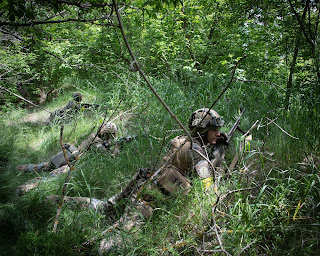It is increasingly apparent to analysts - and to Russian army officers - that success in taking Severodonetsk is more important to Putin than their lives or those of their troops.
The 'rock or hard place' choice is either attacking - and possibly dying - or being replaced, which also carries the risk of demotion, imprisonment and/or loss of employment. JL
SofRep reports:
It is no surprise that there has been an increased number of dead Russian generals and high-ranking military officers in the past week. These deaths mark the 50th, 51st, and 52nd Russian Colonels to be killed in Ukraine since the invasion. As Russia struggles to take the entirety of Severdonetsk, where the majority of the fighting had been taking place in the east, more and more officers are sent out to the frontlines to try and command their forces themselves. “Brigade and battalion commanders deploy forwards because they are held to an uncompromising level of responsibility for their units’ performance."






















































